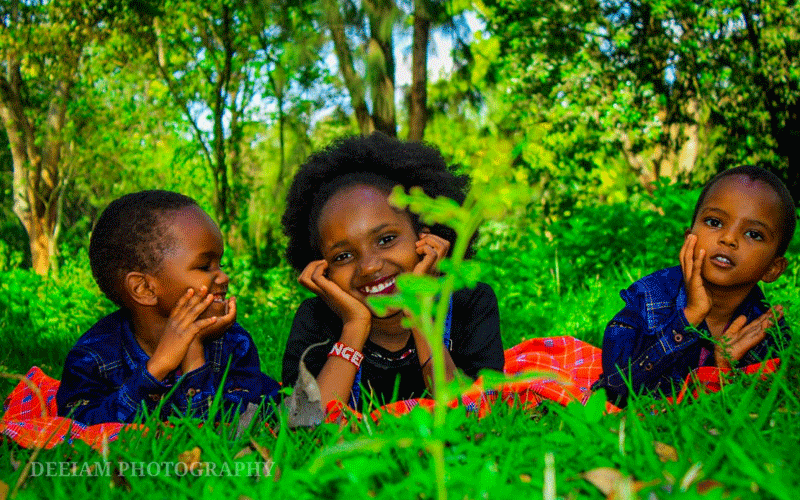Does birth order make a difference?

Birth order is considered by some researchers and psychologists to be one of the most powerful influences on personality, along with genetics, gender, temperament and parenting styles.
This debate over the impact of birth order gained new urgency when the results of a new study showed firstborns’ IQs tend to be higher than those of their younger siblings.
But Carol Nekesa, a mother of three children aged 10, seven and three says her children are all exceptionally different. “Alma, my first born, is an introvert and a logical thinker.
Her choices have to make sense. Theo, my second born, is an extrovert with a free spirit. However, he is the most sensitive of my children and charming.
Peter on the other hand exists in an environment with order, but he is one of the happiest children I have,” says Nekesa.
To help them become successful and self-confident, Nekesa says she attends to all of her children as individuals and gives them opportunities suiting their personalities.
She offers: “Alma is a logical thinker and prefers her own company, she is also keen on technology. Hence, I have enrolled her for coding classes.
Theo on the other hand is outgoing and wants to make friends everywhere. He also loves reading and playing video games hence I take him out for lunches and dinners and run errands with him so that I get to listen to his stories.
Peter is still young, but I spare time to take him out to play and just watch him make discoveries.”
For Caroline Gikunda, a mother of a 12-year-old boy, while growing up, she believed that birth order influenced a person’s character.
“First borns for example were taken to be automatically responsible. They were thought to be co-parents to their younger siblings.
The responsibility of having to take care of their younger siblings was assumed to make them more mature than their age,” says Gikunda.
Birth order not enough
She offers: “As I grew up and became a parent, I realised that a child’s character has to be shaped. Birth order was not enough to cultivate the character one would desire in their children.
It has to be instilled through norms and routines that turn out to be habits and slowly evolve into a character.
We have always come across the assumption that most of ‘only child’ are spoilt brats.
As a mother of one child, I have always gone the extra mile to avoid this route of raising a son who is spoilt brat.
My biggest tool has always been having to pose as his first book and role model. It’s not an easy thing to do, but it’s a sacrifice you make to shape another being.”
Caroline Ng’ang’a, a mother of three on the other hand says birth order does make a difference.
“If the children have a small age gap, they tend to bond more. Thus, every mother has a responsibility to prepare their child/children both psychologically and mentally of another coming baby.
When a child is an only child, they tend to believe that everything belongs to them.
It becomes hard for them to share anything with other children. But this changes once another child comes in,” says Ng’ang’a.
Catherine Musyoka Amulundu, a clinical psychologist says a child’s birth order (being the first, middle, youngest, or only child) has a great influence on their behaviour and personality. This is in part because of how parents treat a child because of his position.
“Firstborns are raised under stringent rules. Parents use trial and error and tend to follow rules to the later.
They use instinct a lot in the upbringing and tend to be attentive to the child. Firstborns receive a lot of undivided attention before other children arrive. As a result, they tend to be perfectionists.
They strive to always please their parents and mature quite early. They are also diligent and want to excel at everything they do,” says Amulundu.
As the leader of the pack, she says that firstborns often tend to be reliable, conscientious, structured, cautious, controlling and achievers.
“Parents might be less attentive to the middle child’s upbringing since there are other children in their lives.
Therefore, the middle child is often a people-pleaser due to the lack of attention they get in comparison to older siblings and younger siblings. They are, however, good at negotiating and fitting in.
They make wider social networks. The middle child may feel left out and doesn’t take responsibility readily since he or she is neither the firstborn nor the lastborn,” she says.
Baby of the house
Youngest children tend to be the most free-spirited due to their parents’ increasingly laissez-faire attitude towards parenting the second (or third, or fourth, or fifth…) time around.
The baby of the family tends to be fun-loving, uncomplicated, manipulative, outgoing, attention-seeker and self-centred.
“With the lastborn, none of their accomplishments seems original. Their siblings have already learnt to talk, read, and ride a bike, hence parents react with less spontaneous joy at their accomplishments and may even wonder, ‘Why can’t he catch on faster?’
They also learn to use their role as the baby to manipulate others to get their way. They are least likely to be disciplined.
Parents often coddle the littlest when it comes to chores and rules, failing to hold them to the same standards as their siblings,” Amulundu says.
An only child on the other hand is a unique position. Without any siblings to compete with, the only child monopolises his parents’ attention and resources— not just for a short time like a firstborn, but forever.
In effect, this makes an only child something like a ‘super-firstborn’. Only children have the privilege (and the burden) of having all their parents’ support and expectations on their shoulders.












